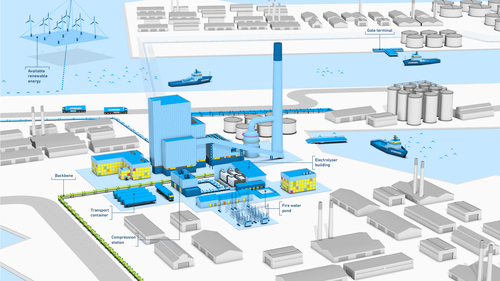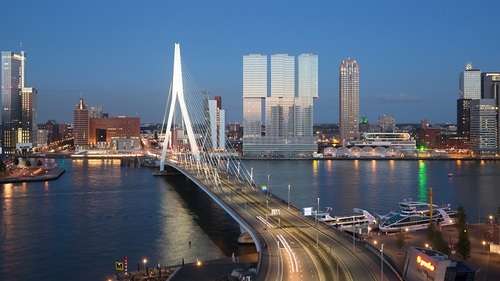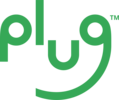To Accelerate European Green Energy Adoption, Uniper Selected Plug to Design the 100MW Electrolyzer Package for the Rotterdam Maasvlakte Plant in The Netherlands
Düsseldorf, Germany and LATHAM, N.Y., - Uniper, a leading international energy company, has selected Plug Power Inc. (NASDAQ: PLUG), a leading provider of hydrogen solutions for the global green hydrogen economy, to design the electrolyzer technology for Uniper’s Maasvlakte site at the Port of Rotterdam. At the Maasvlakte Energy Hub, Uniper plans to commission 100 MW of Plug electrolysis capacity to produce green hydrogen by 2026, rapidly expanding that capacity to 500 MW by 2030 at the latest.
The Rotterdam Harbor area, which includes the Maasvlakte, is the largest carbon emitting industrial cluster in the Netherlands. In 2021 the area emitted 23,4 Mton CO2. Decarbonizing this area alone would contribute significantly to the Dutch overall target to reach net zero by 2050.
“Uniper has embarked on the journey to drastically reduce its emissions,” said Allard Castelein, CEO Port of Rotterdam. “We are very pleased with the steps Uniper is taking. As a port authority we support, stimulate and help companies in Rotterdam to reach the Paris climate treaty goals in multiple ways, including getting infrastructure like a hydrogen pipeline network in place in time. Projects like Uniper’s help reach climate goals but also contribute to a sound future for companies.”
Under the agreement, Plug will deliver 10 prefabricated PEM (proton exchange membrane) electrolyzer arrays for Uniper’s flagship project, H2Maasvlakte upon Uniper’s positive FID. Uniper selected Plug’s mature stack electrolyzer technology.
“The H2Maasvlakte project marks a significant milestone for Europe’s transition to more sustainable, localized energy in response to geopolitical risk and climate change,” said Andy Marsh, CEO of Plug. “Plug is fully committed to a green hydrogen future and our electrolyzer technology has a proven track record of helping customers produce green hydrogen at scale. Our partnership with Uniper validates Plug’s investment in strengthening our EU presence to bring much-needed energy security to the European market.”
"Uniper is striving for a carbon-neutral portfolio by 2035. Our flagship project H2Maasvlakte contributes significantly to this,” said Axel Wietfeld, CEO of Uniper Hydrogen. “I am pleased that we have found a partner in Plug Power with whom we can realize this ambition at a rapid pace."
Plug designs the electrolysis technology for this project as part of the H2Maasvlakte Front-End Engineering Design (FEED) study which is currently being performed by Uniper with Technip Energies. The FEED study is supported by Topsector Energie (TSE) subsidies of the Dutch Ministry of Economic Affairs and Climate. Plug’s electrolyzer technology for H2Maasvlakte will be manufactured in the European Union and the United States.
Categories
Investments
2020-01-01
at Port of Rotterdam (NL)Chemical substances
Countries
Companies
Latest news
INEOS launches €250m investment supported by the French Government to secure the future of French industry at Lavera
The project marks the first phase of a long-term regeneration plan to reduce emissions, boost reliability, efficiency and competitiveness, with support of the French State.
Hycamite’s technology to decarbonize shipping awarded AiP by industry leader DNV
Kokkola Industrial Park →Hycamite’s proprietary Thermo-Catalytic Decomposition (TCD) technology offers a new approach to producing clean hydrogen by breaking down methane, the primary component of liquefied natural gas (LN...
Clariant catalysts will power the Ecoplanta: Europe's first waste-to-methanol plant
Chemmed Cluster Tarragona →Repsol is building Europe’s first plant to produce renewable methanol from urban waste The facility will use Enerkem gasification technology to produce 240 KTA of methanol Clariant will supply cata...
Lilly plans to build a new $3 billion facility to boost oral medicine manufacturing capacity in Europe for patients worldwide
Netherlands site will bring 500 manufacturing and 1,500 construction jobs while further strengthening Lilly's global supply chain


